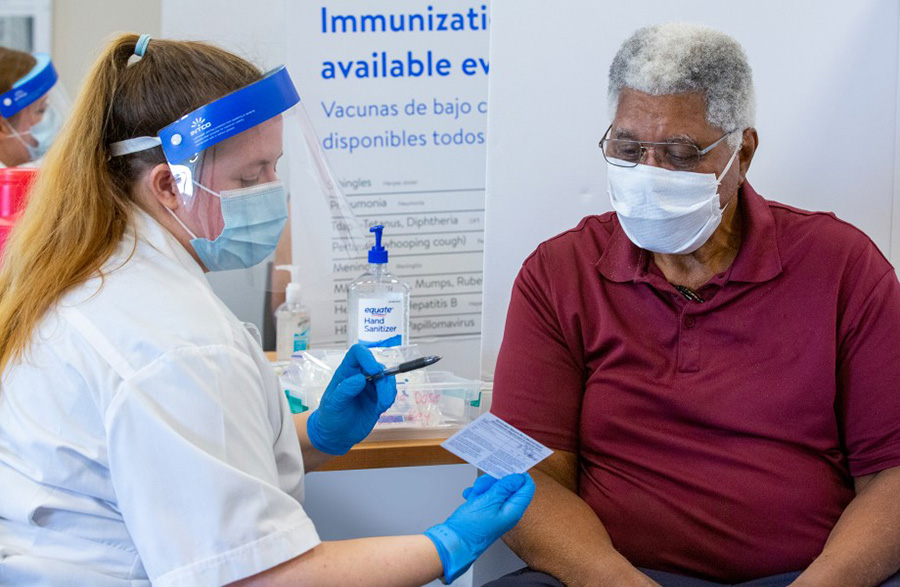It won’t be easy, but Walmart has a goal to vaccinate 13 million Americans every month, according to Cheryl Pegus, MD, the company’s executive vice president of Health and Wellness.
Considering 4,000 out of the 5,000 Walmart stores in this country are in a Health Resources and Services Administration [HRSA] designated medically underserved area, it’s an important goal in improving the low vaccine uptake among vulnerable communities, particularly for those in rural areas of the country. According to a recent survey, three in ten rural residents say they will “definitely not” get vaccinated or will only do so if required and 15 percent are waiting on someone they know to get vaccinated.
“Walmart is the health care service in some rural communities, they come to pharmacies and that is where they receive most of their services, but it is not enough. Success in underserved communities requires an understanding of what the gaps are in those communities,” said Pegus.
Pegus spoke about Walmart’s vaccination efforts as part of a discussion at the Health Evolution Virtual Confab 2021, Health Assurance in the Workforce: Improving Employee Health Outcomes and Equity. She was joined by Alexandra Drane, Co-Founder and CEO, ARCHANGELS and Craig Samitt, MD, President & CEO, Blue Cross Blue Shield of Minnesota.
While the retail giant is still scaling up towards this goal, any achievements it makes will be a testament to the work the organization has done in instilling vaccine confidence in its associates, empowering its pharmacists, and understanding how to reach these populations.
Since Pegus came on board in December, she said one of her first goals has been utilizing the health and wellness team to ensure the 1.5 million associates in Walmart understand and feel comfortable with immunizations. When it comes to COVID-19 vaccines, Pegus noted “there’s a lot of noise that comes out externally. As an employer, if you have trusted voices in your organization, you can help your associates feel like there are no stupid questions.”
She said there has been a lot of learning webinars, one-on-one meetings, and constant communication with the company’s associates. Walmart has also established vaccine ambassadors. “These are people who look like you, who work at the same level and are telling you they’ve gotten their vaccine, telling you it’s the right thing to do,” she said.
Another strategy to scale up vaccinations and improve overall confidence, Pegus said, has been working directly with and empowering the vaccinators themselves, the pharmacists. When vaccine efforts began in January, Pegus knew there would be concerns from these people about side effects, allergic reactions and giving it to high-risk populations, who were the first eligible to receive them.
“For our pharmacists, it was really letting them know that what I wanted was for them to feel as if these were their own patients, they were setting up their own practice and that they felt very confident in what they were doing,” Pegus said. “If you think we’ve trained our associates, just think of the training that the team, our chief medical officer, our pharmacy clinicians, have done to train our pharmacists across the country to be the very early providers of immunizations in different communities.”










